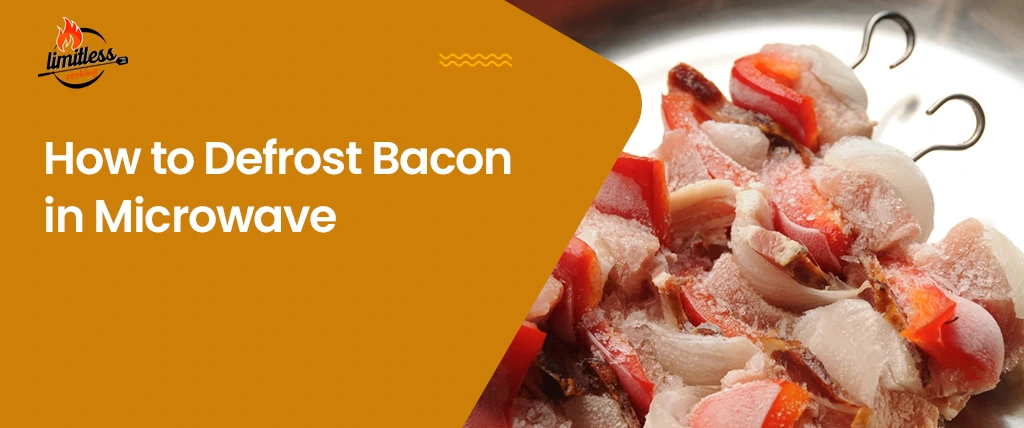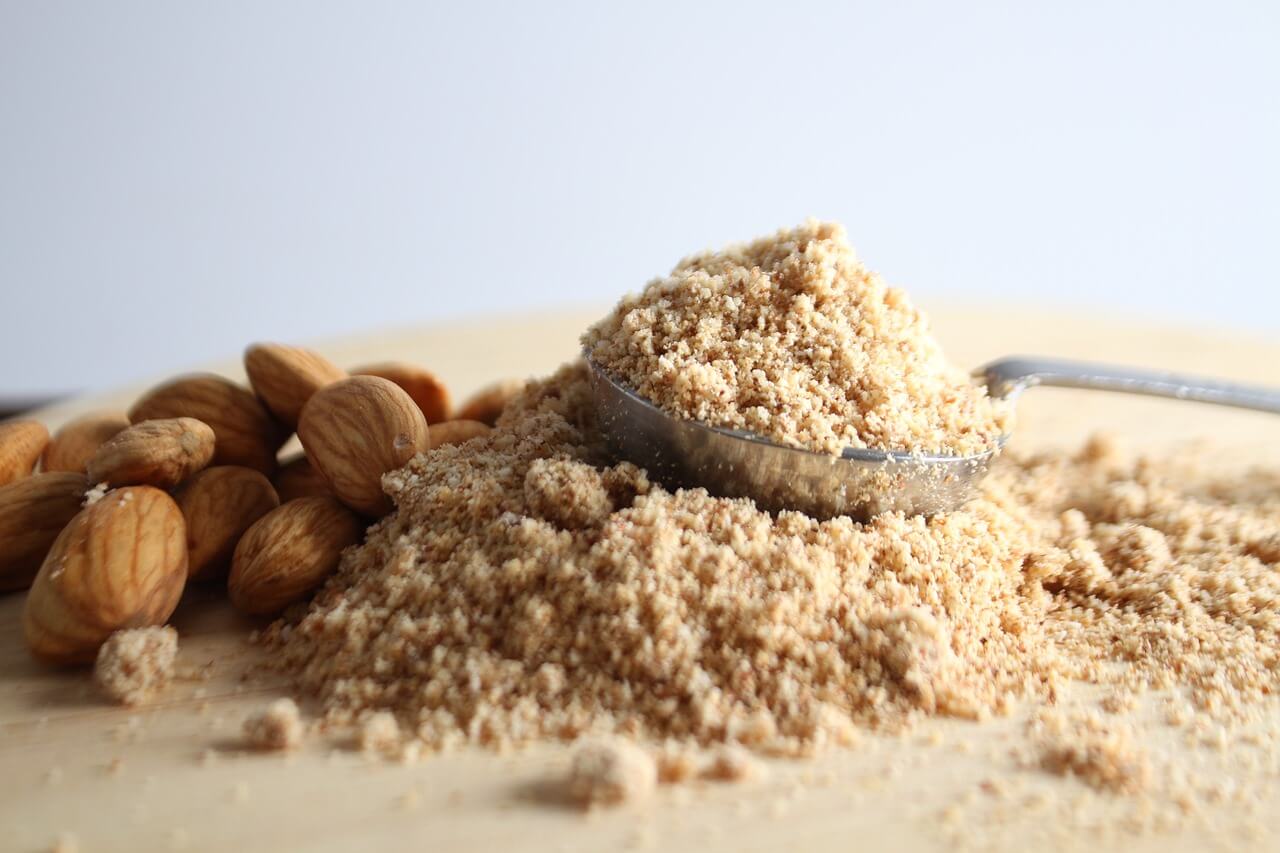Substitute for Potato Starch: 11 Excellent Options

Cornstarch, arrowroot starch, tapioca starch, and rice flour are some easily available substitutes for potato starch. Besides these four, there are a few more options you can try.
But there are ratio differences that you need to consider while replacing potato starch with other alternatives.
What Can I Use Instead of Potato Starch?
Here are the best substitutes for potato starch with some of my best tips on using them.
1. Cornstarch
Cornstarch makes a great substitute for potato starch. Because it has no discernible flavor just like potato starch, you can use it as a direct swap.
- It works as a perfect thickener for sauces, soups, and gravies similar to potato starch.
- It’s a gluten-free staple for baking.
- It is a great replacement for frying and baking.
- It can be used in place of potato starch in a 1:1 ratio.
Note: Remember that cornstarch can’t handle high temperatures well like potato starch. So it’s best to not use cornstarch in recipes that require high heat cooking methods.
2. Arrowroot Starch
Arrowroot starch is a go-to substitute for potato starch for people who are vegan and looking for a gluten-free diet.
It’s virtually colorless and flavorless. So, it can be used in place of potato starch in a variety of recipes.
- It improves the texture and thickness of stews, soups, sauces, and jellies.
- It’s a good source of protein and nutrients.
- Because it’s very easy to digest, it’s a great choice while preparing food for people with sensitive digestive systems
- It’s a bit drier than potato starch, so use a smaller amount of it in your recipe.
- Add it to the recipe just before boiling to get the best result.
- For each tablespoon of potato starch, you can use 2 teaspoons of arrowroot powder.
Note: The flavor of your final product may be slightly altered if you use arrowroot instead of potato starch.
Related Post: Onion Salt vs Onion Powder
3. Tapioca Starch
Tapioca starch is extracted from cassava plants and is a great potato starch substitute because it doesn’t add any noticeable flavor to any dish in any application. It’s commonly used in gluten-free recipes for pancakes, pizza crusts, and breads.
- It adds moistness and fluffiness to baked goods.
- It’s perfect to thicken soups, puddings, and pie fillings.
- You can swap them in an equal amount if you only want to use tapioca starch in small quantities as a thickener.
- For baked items, however, you will need to increase the amount of tapioca starch by 25–50%. But remember to adjust the proportion of other dry ingredients in your recipe.
Note: If you use large amounts of tapioca starch in baking, it can cause baked goods to become chewy or sticky. So to get the best result, you can pair it with other types of flour.
4. Rice Flour
Rice flour is another gluten-free potato starch substitute made from milled white or brown rice.
- It adds a mild and neutral flavor.
- It is commonly used as a thickener and substitute for other flour in gluten-free baking recipes.
- If used at the beginning of cooking, it really works well to thicken soups.
- It is relatively heavier than arrowroot powder, tapioca starch, and other substitutes.
- Rice flour is great for thickening foods like pudding or custards that will be served cool or cold.
- It mixes best with other light starches and gluten-free flours.
- Generally, you can replace each cup (237 mL) of liquid in your recipe with about 2 tablespoons (20 grams) of rice flour.
Note: Rice flour may not be suitable for all recipes due to having a gritty texture.
You may also like: Substitute for Almond Flour
5. Wheat Flour
All-purpose wheat flour is one of the most available and versatile alternatives to potato starch.
- It is a great substitute for baking and frying.
- It also works well as a thickener.
- Wheat flour absorbs liquid more slowly than potato starch. And remember to add it to liquid more slowly so that it doesn’t clump up.
- You may need to double the amount of wheat flour while replacing potato starch.
Note: Avoid wheat flour if you have celiac disease or non-celiac gluten sensitivity. Because it isn’t gluten-free.
6. Potato Flour
Potato flour is made from whole potatoes after peeling, trimming, and drying them. As potato flour has a high amount of potato starch, it can easily replace potato starch in certain recipes.
- It’s gluten-free.
- The fiber and protein contents of potato flour can make baked goods chewier than potato starch.
- For recipes like breads, pizza crusts, and soups, you can swap them in a 1:1 ratio.
Note: 1. Potato flour won’t perform the same as potato starch. 2. Because it has a distinct earthy flavor from potato starch, it’s best used in savory recipes rather than pastries or desserts.
7. Coconut Flour
This keto- and paleo-friendly substitute for regular flours can replace potato starch in many dishes. Coconut flour performs even better when mixed with other starchy options, such as cornstarch.
- It has a mildly sweet flavor unlike potato starch and works best in desserts, baked goods, and in certain soups and sauces that taste better with some sweetness.
- Coconut flour is different in texture and consistency than potato starch.
- Due to being very absorbent, it can dry out some dishes.
- Make sure to reduce the amount of coconut flour by 10–15% in recipes that call for potato starch.
Note: Coconut flour isn’t a good alternative to potato starch in all dishes.
8. Instant Mashed Potatoes
Instant mashed potatoes are made from cooked, mashed potatoes that have been dehydrated into powdered flakes. They can be a quick alternative to potato starch.
- You can swap potato starch with instant mashed potatoes in an equal amount to thicken and enhance the texture of gravies, soups, and sauces.
- You must process the instant mashed potatoes in a high-speed blender or food processor to give them a fine consistency before using them instead of potato starch.
Note: Instant mashed potatoes are essentially potato flour with much higher sodium content. Consider this if you plan to use this in your dish.
You may also like: Avocado Oil Substitute
Some other Alternatives to Potato Starch
- Mochiko flour, a type of rice flour, has a sticky texture and a subtle sweet taste. You can use it in equal amounts to replace potato starch in sweets and pastries recipes.
It can be also used as a breading for fried foods and a thickener in place of potato starch.
- Almond flour can be used instead of potato starch in many dishes. But it will perform particularly well in baked goods such as cakes and cookies.
- You can also use oat flour to replace potato starch, especially in baking. But remember that in some recipes, it may add too much thickness.
Potato Starch vs Cornstarch
Though they can be used as a substitute for each other, they are distinct in their qualities and characteristics, including:
Carbs and calories: 1 tablespoon of potato starch contains 43 calories, 10 grams of carbohydrates, 0.8 grams of proteins, 0.7 grams of fiber, and no fat. A tablespoon of cornstarch contains 30 calories, 7.3 grams of carbohydrates, and 0.7 milligrams of sodium. So, overall they don’t have much nutrient value.
Cooking: Potato starch can withstand high temperatures but not longer. On the other hand, high temperatures can cause the cornstarch to clump up but it can handle long cooking times.
Final Words
While making your favorite recipe, if you remember that you have no potato starch in the pantry, I hope you won’t be worried anymore.
You can easily replace this versatile and gluten-free ingredient with the options listed above in your recipe. But make sure to adjust the amount of these substitutes to achieve the desired texture and taste.






